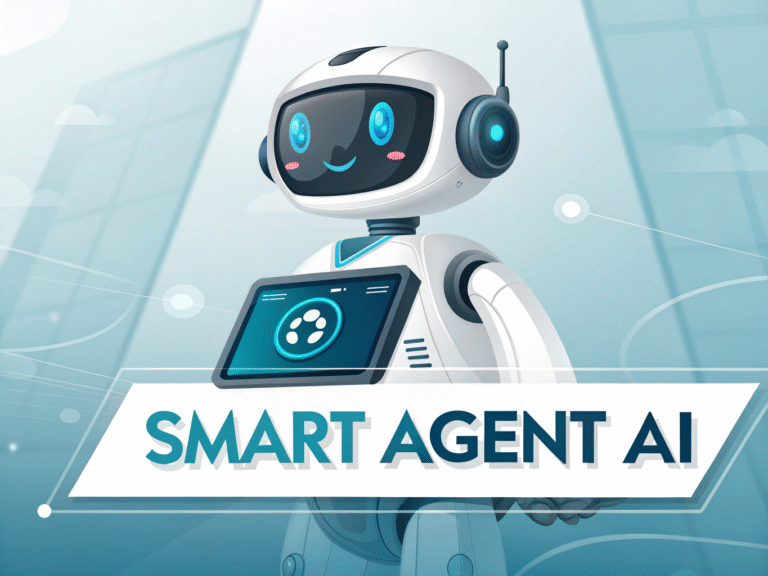Anatoly Yakovenko on Agentic Coding: Solana Co-Founder’s Vision
The world of software development is in constant flux, but few figures inspire as much forward-thinking discussion as Anatoly Yakovenko, co-founder of Solana. His recent pronouncements on agentic coding have sent ripples through the tech community, suggesting a future where software builds and optimizes itself. This article delves into why Solana co-founder Anatoly Yakovenko is a big fan of agentic coding, exploring its profound implications for blockchain technology, artificial intelligence, and the very fabric of decentralized applications. Prepare to uncover the intricacies of this transformative approach.
Table of Contents
- The Rise of Agentic Coding: A Paradigm Shift
- Anatoly Yakovenko’s Vision: Solana and Agentic Systems
- Core Principles and Benefits of Agentic Coding
- Challenges and Future Prospects for Agentic Development
- The Agentic AI & Blockchain Intersection: A Powerful Synergy
In the rapidly evolving landscape of technology, innovation often springs from unexpected intersections. One such pivotal convergence is the concept of agentic coding, a paradigm that suggests a future where autonomous software agents can write, test, and even deploy code with minimal human intervention. This vision is not merely theoretical; it’s a direction passionately endorsed by none other than Anatoly Yakovenko, the influential co-founder of the Solana blockchain. His enthusiasm stems from the belief that agentic systems hold the key to unlocking unprecedented levels of efficiency, security, and scalability – qualities that are particularly crucial for high-performance decentralized networks like Solana.
Yakovenko sees agentic coding as a natural progression in software development, moving beyond traditional, human-centric processes to a more dynamic, self-optimizing framework. This article will explore the philosophical underpinnings of agentic coding, dissect Yakovenko’s specific interest in it, and examine how it could reshape not only the Solana ecosystem but the entire digital infrastructure. From AI-driven smart contract generation to self-healing distributed systems, the potential applications are vast and transformative. It’s clear that Solana co-founder Anatoly Yakovenko is a big fan of agentic coding, and his advocacy offers a glimpse into the next frontier of technological advancement.

The Rise of Agentic Coding: A Paradigm Shift
Agentic coding represents a significant departure from conventional programming methodologies. Instead of human developers meticulously crafting every line of code, agentic systems involve intelligent, autonomous agents that can generate, evaluate, and refine code based on high-level objectives and constraints. This approach leverages advancements in artificial intelligence, particularly large language models (LLMs) and reinforcement learning, to create software that is not only self-aware but also self-improving.
Evolution from Traditional Development
Historically, software development has been a deeply human-intensive process, reliant on skilled engineers to translate requirements into functional code. Agile methodologies, DevOps, and continuous integration have streamlined parts of this process, but the core act of coding remains largely manual. Agentic coding proposes a meta-level of automation:
- From Manual to Autonomous: Shifting from human-typed code to AI-generated and optimized code.
- Adaptive Systems: Code that can adapt to changing environments and requirements without direct human intervention.
- Enhanced Reliability: Agents can continuously monitor and repair code, leading to more resilient applications.
This isn’t about replacing developers entirely, but rather empowering them with tools that can handle repetitive, complex, or optimization-heavy tasks. Imagine a developer specifying desired system behavior, and an agentic system iteratively generating and testing code until that behavior is met optimally. This is the promise that excites visionaries like Yakovenko, recognizing that such efficiency could supercharge complex distributed systems.
The AI Backbone of Agentic Systems
The recent explosion of powerful AI models is what makes agentic coding a viable reality. LLMs can interpret natural language prompts, understand coding paradigms, and generate syntactically correct and semantically meaningful code snippets. Coupled with agent architectures that involve planning, reflection, and tool-use, these AI systems can act as sophisticated software engineers. Researchers estimate that by 2030, over 70% of new code could be partially or fully agent-generated, drastically accelerating development cycles and reducing human error. [Link to: The Impact of AI on Software Development]
For high-throughput systems like Solana, where microseconds matter and vulnerabilities can have catastrophic consequences, having self-optimizing and self-auditing code becomes an invaluable asset. It allows for rapid iteration and resilience at a scale previously unimaginable. It’s no wonder Solana co-founder Anatoly Yakovenko is a big fan of agentic coding, recognizing its capacity to elevate blockchain performance and security.
Anatoly Yakovenko’s Vision: Solana and Agentic Systems
Anatoly Yakovenko’s advocacy for agentic coding isn’t merely academic; it’s deeply rooted in the practical challenges and future aspirations of the Solana ecosystem. Solana was designed for speed and scalability, aiming to process tens of thousands of transactions per second. Achieving and maintaining such performance requires constant optimization, robust security, and efficient resource management. Agentic coding aligns perfectly with these goals.
Addressing Blockchain Challenges with Autonomy
Yakovenko envisions agentic systems playing a crucial role in:
- Smart Contract Optimization: Autonomous agents could identify inefficiencies in smart contract code, suggesting or even implementing improvements to reduce transaction costs and execution times. This is particularly vital for DeFi applications on Solana.
- Network Resilience: Agentic monitoring systems could detect anomalies or potential attacks on the Solana network, then autonomously deploy patches or reconfigure nodes to mitigate threats in real-time.
- Decentralized Application (dApp) Development: Imagine dApps that can evolve and update their own logic based on user interaction patterns or changes in economic conditions, without requiring manual redeployment. This dynamic adaptability could revolutionize the user experience in Web3.
- Scalability Solutions: Agentic systems could manage load balancing and shard allocation within the Solana network, dynamically adjusting resources to handle peak demand more efficiently than current static configurations.
This vision pushes the boundaries of what’s possible in a decentralized environment, suggesting a future where blockchain infrastructure is not just fast and secure, but also intelligent and self-sustaining. Anatoly Yakovenko, as a blockchain pioneer, understands that the next leap in decentralized technology will likely come from embracing these advanced forms of automation. In his own words, “Agentic systems offer a path to build software that is inherently more reliable and scalable for truly global, permissionless networks like Solana.”

Core Principles and Benefits of Agentic Coding
Understanding the “why” behind Yakovenko’s enthusiasm requires a look at the fundamental principles and substantial benefits that agentic coding brings to the table. This isn’t just about faster development; it’s about fundamentally altering how we perceive and interact with software.
Key Principles
Agentic coding operates on several core tenets:
- Autonomy: Agents can make decisions and take actions without continuous human oversight.
- Goal-Oriented: Agents are given high-level objectives (e.g., “optimize transaction throughput by 10%”) rather than step-by-step instructions.
- Reflection and Learning: Agents can evaluate their own performance, identify failures, and learn from past interactions to improve future actions.
- Tool Use: Agents can interact with external tools, APIs, and libraries, much like a human developer would, to accomplish tasks.
- Collaboration: Complex tasks can be broken down and distributed among multiple specialized agents working together.
These principles combine to create a dynamic development environment where software is not just written, but grown and nurtured by intelligent systems. This iterative, self-correcting process is incredibly powerful for complex, high-stakes environments.
Transformative Benefits
The practical advantages of adopting agentic coding are numerous:
- Accelerated Development Cycles: Agents can generate boilerplate code, perform refactoring, and conduct testing at speeds unmatched by human teams. This could slash development timelines by as much as 50% for certain projects.
- Increased Code Quality and Security: Autonomous agents can enforce best practices, identify subtle bugs, and conduct exhaustive security audits far more consistently than human reviewers. Yakovenko notes that for Solana, this could mean a significant reduction in critical vulnerabilities.
- Enhanced Adaptability: Software can automatically respond to changing requirements, new data, or unexpected events, making systems more robust and future-proof. This is crucial for rapidly evolving decentralized ecosystems.
- Resource Optimization: Agents can continuously fine-tune code for performance, reducing computational load and energy consumption – a significant factor for sustainable blockchain operation.
- Democratization of Development: Lowering the barrier to entry by allowing individuals with high-level conceptual understanding to create complex applications without needing to master every programming language detail.
These benefits highlight why Solana co-founder Anatoly Yakovenko is a big fan of agentic coding. He sees it not just as an incremental improvement but as a fundamental shift that will redefine the capabilities and robustness of blockchain technology. [Link to: The Future of Decentralized Applications]
Challenges and Future Prospects for Agentic Development
While the promise of agentic coding is immense, its widespread adoption is not without hurdles. Like any nascent technology, it presents significant technical, ethical, and practical challenges that need careful consideration and innovative solutions.
Current Challenges
Developing robust agentic systems requires addressing several complex issues:
- Defining Clear Objectives: Precisely articulating high-level goals for agents without ambiguity is difficult. Misinterpretations can lead to undesirable outcomes.
- Verification and Trust: How do we verify that agent-generated code is truly correct, secure, and aligns with human intent, especially in critical systems like blockchain? Building trust in autonomous code is paramount.
- Debugging Agent Systems: When an agent-driven system fails, diagnosing the root cause can be significantly more complex than debugging traditional code, as the “thought process” of the agent might be opaque.
- Computational Overhead: The iterative testing and refinement process of agentic systems can be computationally expensive, requiring substantial resources.
- Ethical Concerns: Who is responsible when an autonomous agent makes a mistake or creates unintended consequences, particularly in financial or mission-critical applications?
Yakovenko acknowledges these challenges, emphasizing the need for robust testing frameworks, explainable AI, and careful governance models to ensure agentic systems are deployed responsibly. Industry experts predict that overcoming these challenges will be a major focus for AI and software engineering research over the next decade. A recent survey indicated that 45% of senior developers are excited but cautious about agentic coding, citing “explainability” as their top concern.
Future Prospects and Development Roadmap
Despite the challenges, the trajectory for agentic coding is overwhelmingly positive. The future holds several exciting possibilities:
- Specialized Agents: Development of agents highly specialized in specific domains, such as security auditing agents, performance optimization agents for Solana smart contracts, or UI/UX generation agents.
- Hybrid Human-Agent Teams: A collaborative model where human developers oversee and guide teams of autonomous agents, leveraging AI for brute-force problem-solving while humans focus on creative design and high-level strategy.
- Self-Evolving Ecosystems: Entire software ecosystems that can autonomously adapt, upgrade, and even fork themselves in response to external conditions or internal needs, creating truly resilient digital organisms.
- Formal Verification Integration: Tighter integration of formal verification techniques with agentic systems to mathematically prove the correctness and security of agent-generated code, crucial for blockchain applications.
The vision of Solana co-founder Anatoly Yakovenko is a big fan of agentic coding, and his foresight is pushing the boundaries of what is considered possible in blockchain development. The journey ahead will be complex, but the potential rewards—a world of more efficient, secure, and adaptable software—are well worth the effort. [Link to: Blockchain Scalability Solutions]

The Agentic AI & Blockchain Intersection: A Powerful Synergy
The true power of agentic coding, particularly in the context of Anatoly Yakovenko’s vision, lies in its intersection with blockchain technology. Both fields are pushing the boundaries of decentralization and automation, and their synergy promises to create entirely new forms of digital infrastructure.
Blockchain as an Operating System for Agents
Blockchains like Solana can serve as an ideal substrate for agentic systems:
- Trustless Execution: Smart contracts on Solana provide a secure, tamper-proof environment for agents to execute code and interact with digital assets.
- Immutable Records: All actions and decisions made by agents can be immutably recorded on the blockchain, providing an auditable trail and enhancing transparency.
- Decentralized Coordination: Blockchain allows agents to coordinate and make collective decisions without relying on a central authority, crucial for truly autonomous systems.
- Economic Incentives: Cryptoeconomic models can be designed to incentivize agents to act in the best interest of the network, rewarding efficient code generation or security enhancements.
This creates a feedback loop: agentic coding makes blockchain more powerful, and blockchain provides the ideal secure, decentralized infrastructure for agentic systems to flourish. It’s a symbiotic relationship that could define the next era of Web3 development, championed by forward-thinkers like Yakovenko.
Real-World Applications on the Horizon
Consider the potential applications where agentic AI directly enhances blockchain functionality:
- Self-Auditing Smart Contracts: Agents could continuously scan Solana’s smart contracts for vulnerabilities or inefficiencies, autonomously proposing or even implementing fixes, vastly improving security posture.
- Dynamic DeFi Protocols: Decentralized finance (DeFi) protocols could be managed by agentic systems that adapt lending rates, liquidity pools, and yield strategies in real-time based on market conditions, without human intervention.
- Autonomous DAOs: Decentralized Autonomous Organizations (DAOs) could transition from human-voter-driven governance to agent-assisted or even agent-led decision-making, streamlining operations and reaction times.
- Cross-Chain Interoperability: Agentic systems could facilitate more intelligent and secure cross-chain communication, optimizing asset transfers and data exchange between different blockchains.
The integration of agentic coding with blockchain technology is not just an intriguing concept; it’s a strategic direction that promises to unlock new levels of efficiency, security, and true decentralization. It is precisely this transformative potential that makes Solana co-founder Anatoly Yakovenko a big fan of agentic coding, believing it will be instrumental in realizing the full potential of Web3.
Frequently Asked Questions
What is agentic coding?
Agentic coding is a development paradigm where autonomous software agents, often powered by AI, are tasked with generating, testing, debugging, and optimizing code based on high-level objectives, significantly reducing direct human intervention. Why is Solana co-founder Anatoly Yakovenko interested in agentic coding?
Anatoly Yakovenko is interested in agentic coding due to its potential to enhance Solana’s performance, security, and scalability. He believes it can lead to more efficient smart contracts, resilient network infrastructure, and adaptive decentralized applications. How can agentic coding benefit blockchain technology?
Agentic coding can benefit blockchain by enabling self-optimizing smart contracts, real-time network security, dynamic dApps, and improved scalability solutions, leveraging AI to create more robust and efficient decentralized systems. What are the main challenges for adopting agentic coding?
Key challenges include precisely defining objectives for agents, ensuring the verifiability and trustworthiness of agent-generated code, developing effective debugging tools for autonomous systems, managing computational overhead, and addressing ethical considerations. Will agentic coding replace human developers?
Agentic coding is more likely to augment human developers rather than replace them. It aims to automate repetitive and complex tasks, freeing developers to focus on higher-level design, creative problem-solving, and overseeing autonomous systems, leading to more efficient hybrid teams.
About the Author: Sarah Johnson
Sarah Johnson is a senior blockchain analyst and AI ethics researcher with over a decade of experience in emerging technologies. Her work focuses on the convergence of artificial intelligence and decentralized systems, exploring how innovations like agentic coding will shape the future of Web3. She regularly contributes to leading tech publications, providing insights into the strategic vision of industry leaders and the practical implications of cutting-edge research. She is particularly keen on how Solana co-founder Anatoly Yakovenko is a big fan of agentic coding and its potential to revolutionize the digital landscape.
Published: October 28, 2025


